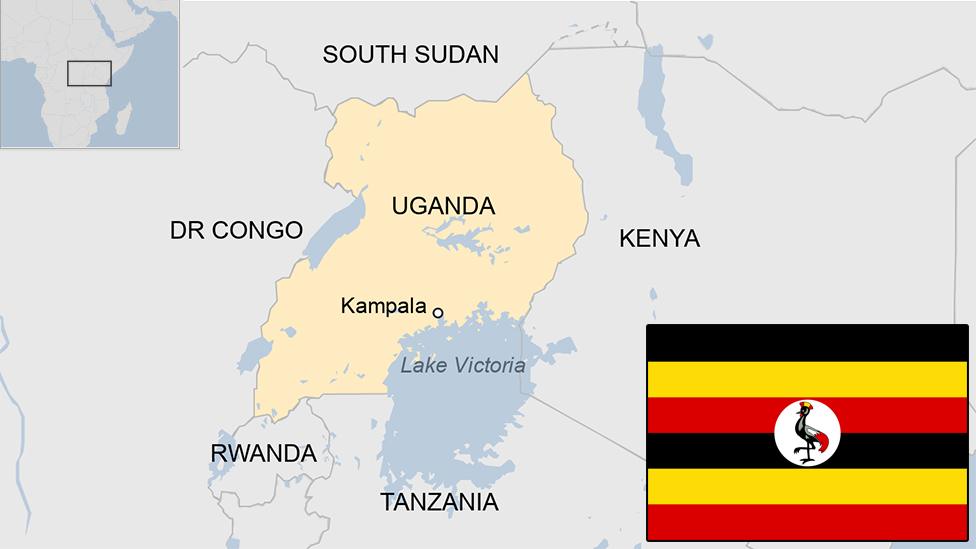Uganda election: Old guard tries new tactics
- Published
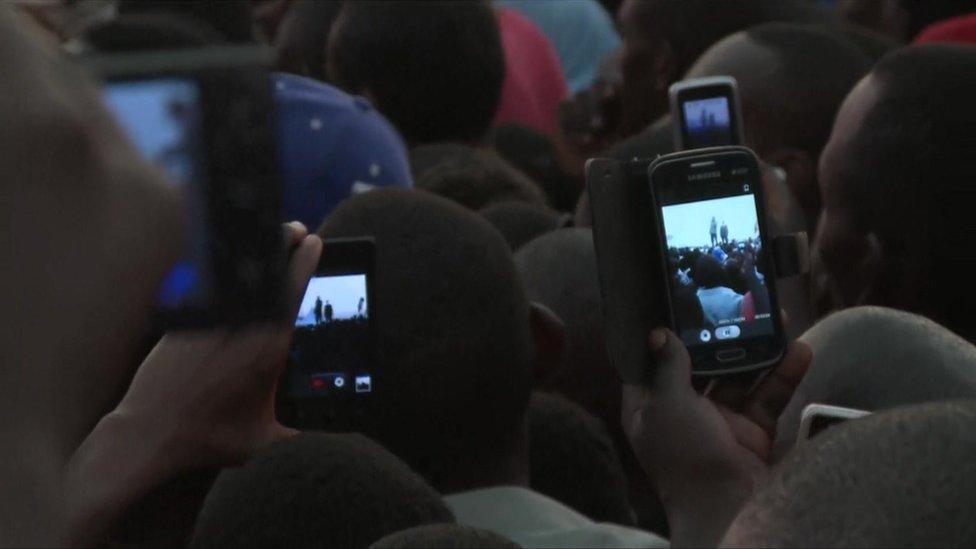
Three days before Uganda's general elections, tear gas and rubber bullets rang out over the capital, Kampala.
By the end of the day an armoured police carrier was towing the veteran opposition leader Kizza Besigye back home in his car.
Thousands of his supporters poured on to the streets and had run-ins with the security forces.
At least one person died in the clashes and more than 11 were injured.
It is a scene many Ugandans had dreaded.
This is the fourth time that Mr Besigye, candidate for the opposition Forum for Democratic Party, is taking on President Yoweri Museveni.
There are six others in the presidential race, including the independent Amama Mbabazi, a former prime minister and once close to the president.
All three men fought in the five-year civil war that brought Mr Museveni to power in 1986 and have played key roles in the country's politics ever since.
Crowdfunding
But while it is may seem business as usual with the same old faces, the democratic space in Uganda is changing.
Uganda’s vote by hand gestures - and four other poll facts
In days gone by politicians bought votes, now it is the voters who have been handing over their own money.
It is crowdfunding, Ugandan style.
It started spontaneously at Mr Besigye's rallies - with supporters running forward to offer him cash, often only a dollar or less.
In the end his team gave out numbers so people could contribute via their mobile phones.
For Mr Besigye this shows how the election can be an opportunity to build mass support that can challenge the government in a peaceful manner.
"We have gone into this campaign well aware that it's not a free or fair process," he told the BBC.
"Therefore we undertook to rally people to defy all these challenges."
Web power
This is a country with an extremely young population. More than 75% of the population is below the age of 30.

Major presidential contenders:
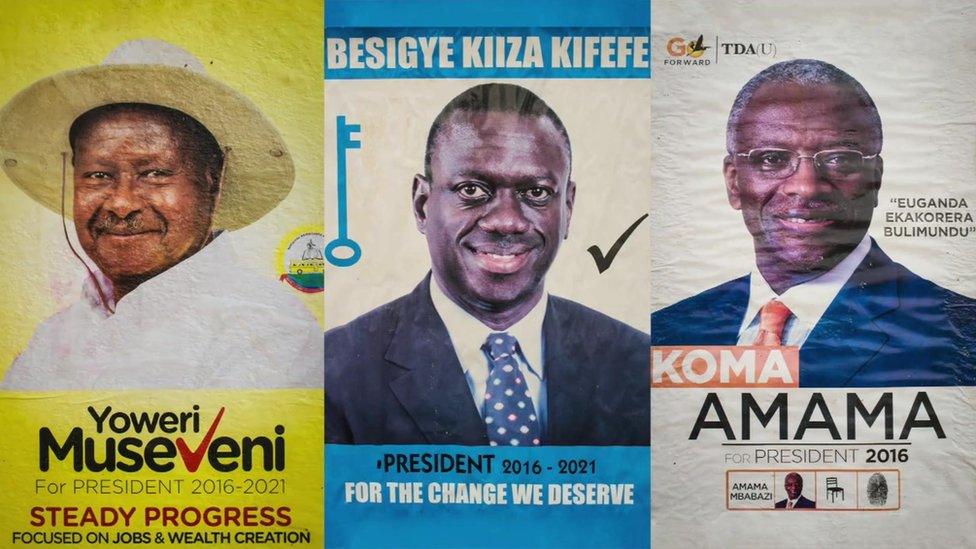
Kizza Besigye, 59, veteran opposition leader and once personal doctor to incumbent President Museveni
Amama Mbabazi, 67, former ally of President Museveni and once prime minister and also served as defence, security and justice ministers
Yoweri Museveni, 71, in power since 1986 - says Uganda is like a banana farm he planted that is now bearing fruit

And with that the internet, especially via social media, has become the new battleground.
There are now 8.5 million web users, according to government data, slightly higher than the number of people who voted at the last election.
Candidates have aggressively pursued their online campaigns.
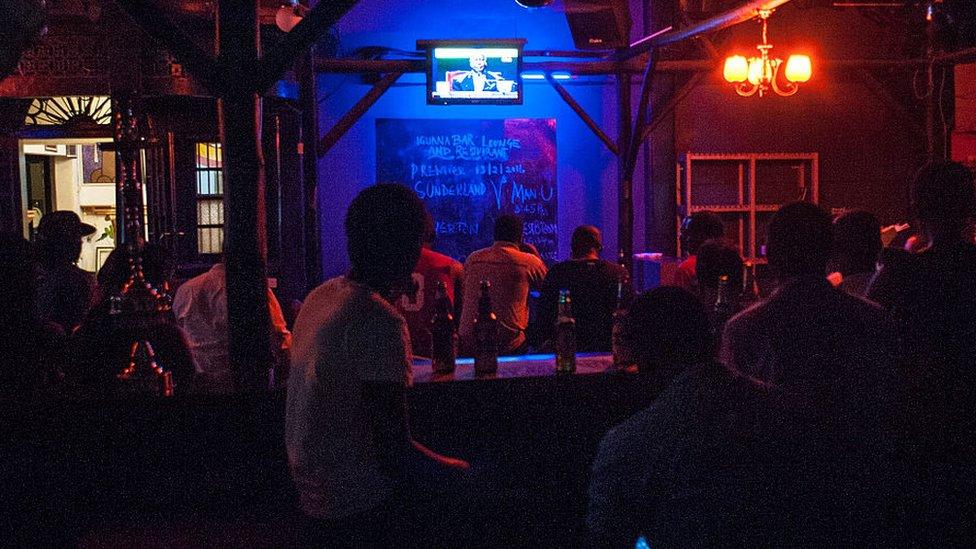
Uganda's first-ever candidates' debates were keenly followed in bars
The 71-year-old president still sings and raps at rallies - and though none of his songs have gone viral, he is still considered favourite to win.
His critics say he is simply determined to hold on to power - with fears that volunteer vigilantes armed with sticks and managed by the security forces, known as "crime preventers", may be used for intimidation.
But the electoral commission says it has been free and fair so far and will continue to be an impartial process.

Other presidential candidates:
Benon Biraro, retired major general
Venansius Baryamureeba, academic and former vice-chancellor of Makerere University
Abed Bwanika, vet and pastor - campaigning on an anti-homosexuality platform
Maureen Kyalya, only female candidate
Joseph Mabirizi, pastor - alleges he was kidnapped by security agents after he declared his candidacy

Media guru Simon Kaheru, one of the most-followed Ugandans on Twitter and part of the president's campaign team, feels it is wrong to focus all the criticism on one man.
"Uganda is not a monarchy, and the position of president is not the beginning and the end of leadership in Uganda.
"One opposition politician has been a candidate for 15 years, for instance, and another has been in leadership for the same time as Museveni - there is practically no difference in terms of longevity."
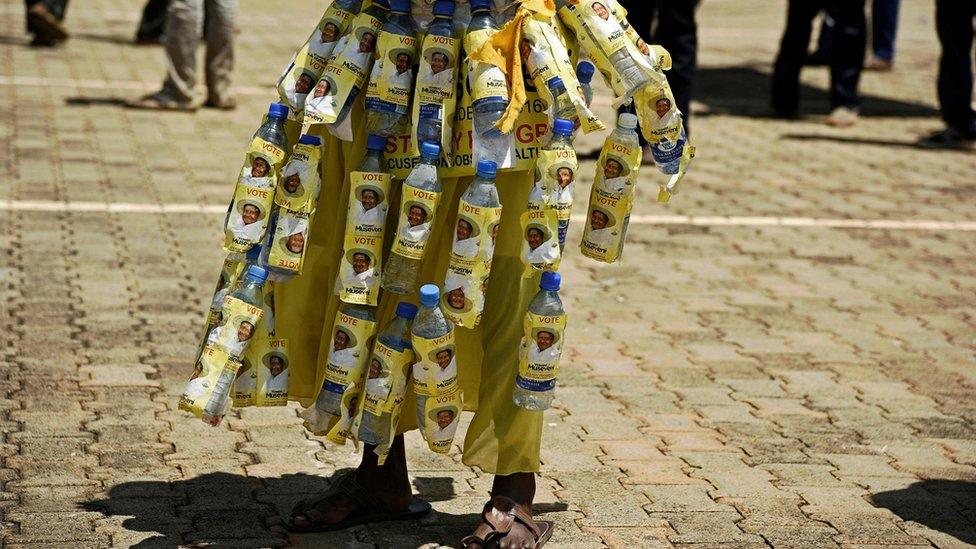
One supporter of Mr Museveni fashioned a skirt made from bottles
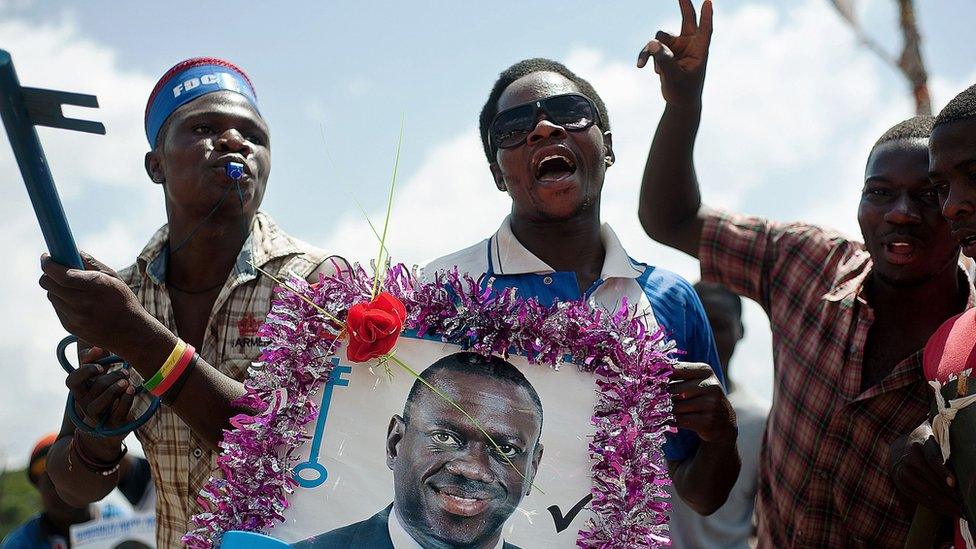
More than 75% of Ugandans are below the age of 30
Mr Museveni is making a concerted effort to try to appeal to young modern voters, most of whom were not born when he came to power.
He took part in his first televised presidential debate last weekend.
Most people did not expect him to handle it well, considering he is used to giving one-hour speeches where he tends to lecture his audience.
But he was very concise and to the point, though many found the questioning easier than an earlier debate which he boycotted at the last moment.
Another first in 30 years is that there are three strong contenders on the ballot.
People are curious to see whether Mr Mbabazi, who recently fell out with Mr Museveni, will draw votes - and who this will hurt most.
If he eats into Mr Museveni's vote, it could push the election to a second round.
This too would be novel for President Museveni, who has never failed to get anything less than 59% in the past four ballots.
- Published10 February 2016
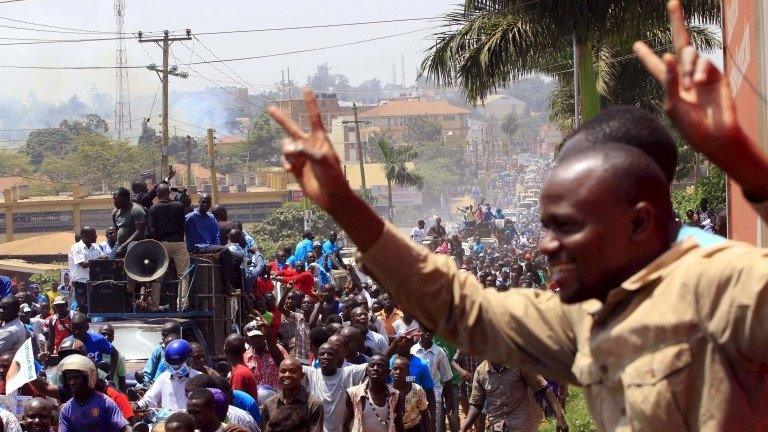
- Published17 February 2016
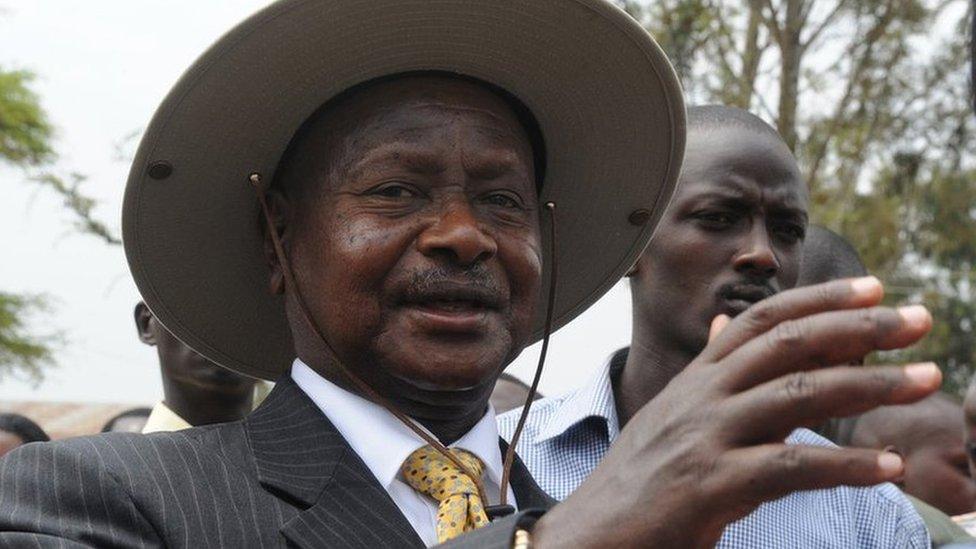
- Published17 February 2016
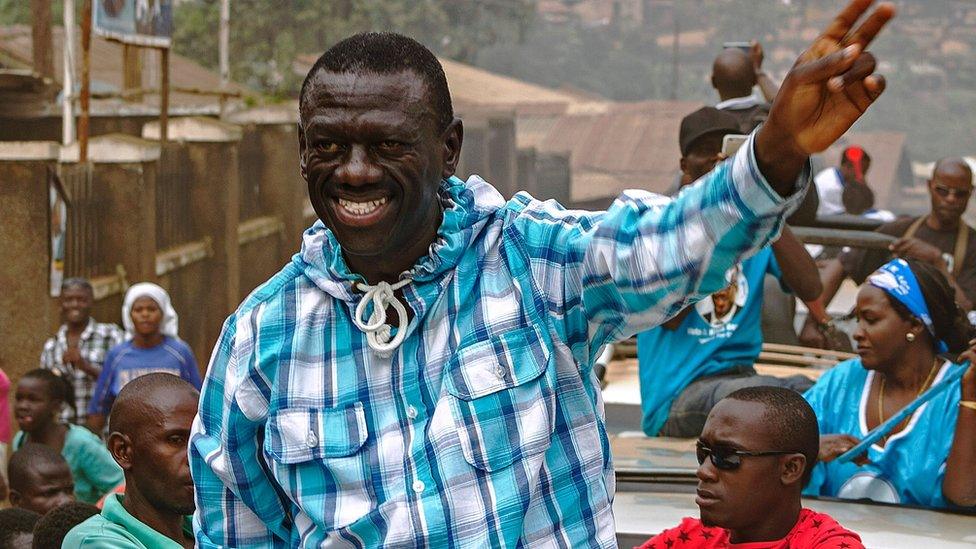
- Published17 February 2016
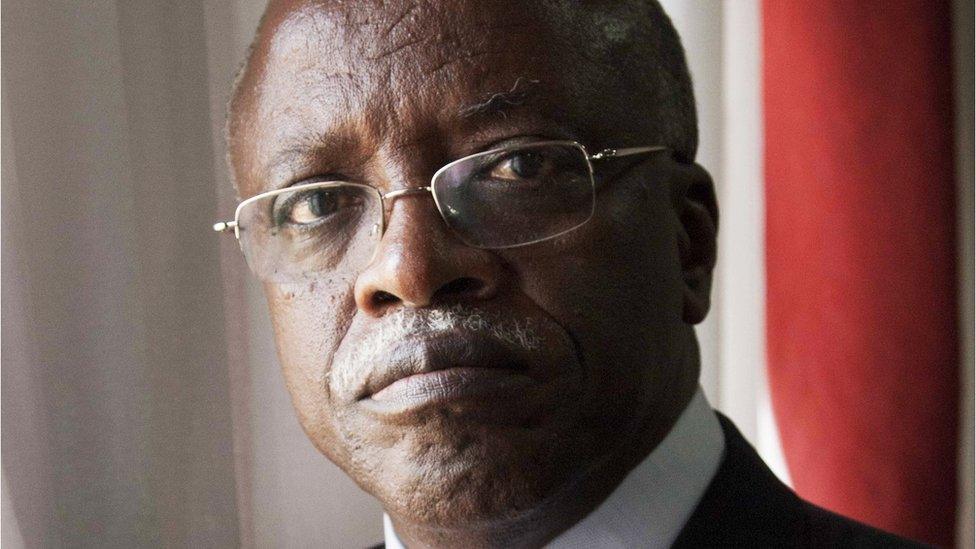
- Published26 April 2023
